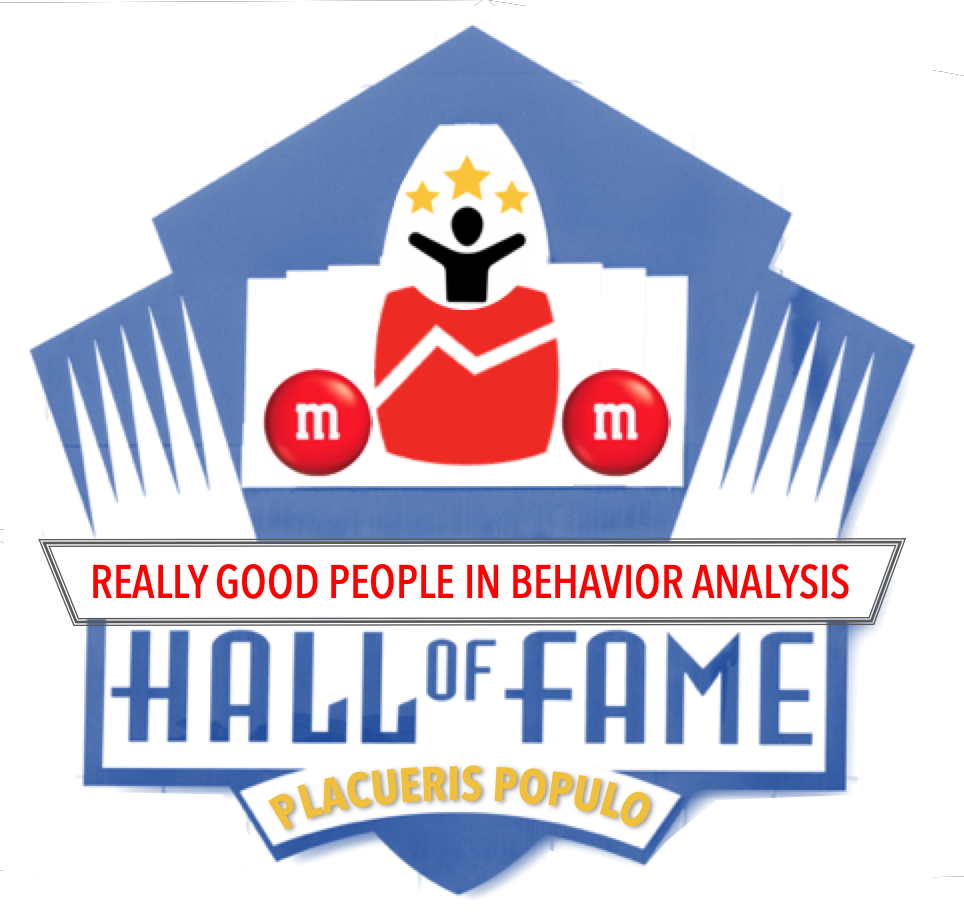
by April Louise-Fowler, MS, BCBA
Doctoral Candidate, University of North Texas
There is an implicit assumption that humans learn and work best when their basic needs are met; when they are rested, safe, hydrated, healthy, and their bellies are full. We often prioritize this with children, as a given. Children are still learning, and it is the responsibilities of the adults around them to help them learn, grow, and thrive. But even in adulthood, life gets complicated. I’ve spent a large portion of my 20s and 30s existing and learning in departments of behavior analysis, which has been full of exciting and enriching experiences. But I, as a growing human, have often also felt lost, sad, angry, overwhelmed, and confused. In my explorations and journeys, I am lucky to have found a bright north start to help guide my way.
Dr. Shahla Alai-Rosales is nourishment for the metaphorical spirit and soul. At her core, and like her mentors before her, she is first and foremost a teacher. A textbook might more accurately describe her as a responsive, constructional, compassionate master change agent with an orientation towards radical behaviorism, interbehaviorism, ecobehaviorism, among all her other consultative epistemologies… But for the purposes of this story, I’ll just call her my most favorite teacher.

Throughout my doctoral journey, I have been sick a lot. Every day, in fact. I have a disease that is not well studied, and thus not well understood. Shahla keeps me going.
She is a master shaper and knows how to build generative repertoires with her students. She always knows what to say, when to push, when to expand, when to scale back, when to rest, when to contextualize, and when to consider more perspectives. She knows my history, she knows my goals, and she knows my hardships. She knows these things because she seeks this information. Historical and contextual variables are important to understanding the learning process.
Shahla teaches us that being a scientist both requires bravery and love to better the lives of those we serve. I could talk for days about her impact on thousands of children, families, practioners, students, and community members. Or her work on boards, journals, councils, with policies, and systems. Or about the behavior analytic contributions she’s made in the areas of autism intervention, parent coaching, stimulus control, conditioned reinforcement, play expansion, phobias, social justice, community building, dialogue, or any number of the incredibly important work she’s done. But today, I am choosing to describe a small part of why Shahla is my unsung hero.
Shahla teaches us that the details matter. In what we say, and what we do. And I have seen these models constantly throughout the years I have known her. Just last week, I came to her house for a workday. I was having a hard time eating, feeling very nauseous and weak. I hadn’t eaten a full meal in a couple weeks. So, when I got there, she fixed me food that I could eat, with simple ingredients and powerful anti-inflammatories. I ate most of it. Then, we worked more and when it was dinner time, she again, cooked things I could eat, with lots of protein. I ate the whole plate. Through her tailored home cooked meals, her gentle kindness, and curious enthusiasm, I could feel my body healing in real time. Not only my physical ailments, but also my general disposition towards the world. We made a lot of great progress on the dissertation project too. Because I had more energy and could focus more. It was a happy day. But this is just who Shahla is. This was just a typical Saturday. Nothing out of the ordinary of Shahla’s typical day.

Shahla is a servant of the world who wears duty as a badge of great honor. She has been, and continues to be, a shield and a fierce protector of many individuals within and outside of the field of behavior analysis. For those who have experienced the honor of her mentorship, we feel a little bit safer and more confident when she walks in the room. We know she will move us towards harmony and justice. She’s got our backs. In any way we may need. An applied scientist cannot learn to make an impact without a strongly cultivated verbal community to guide the learning process. She sees that scope and sequence. So, she starts where people are; carefully and lovingly watering their roots so that their stems may be shaped and strengthened. And wow, have I seen some of the most beautiful flowers bloom in these gardens.
